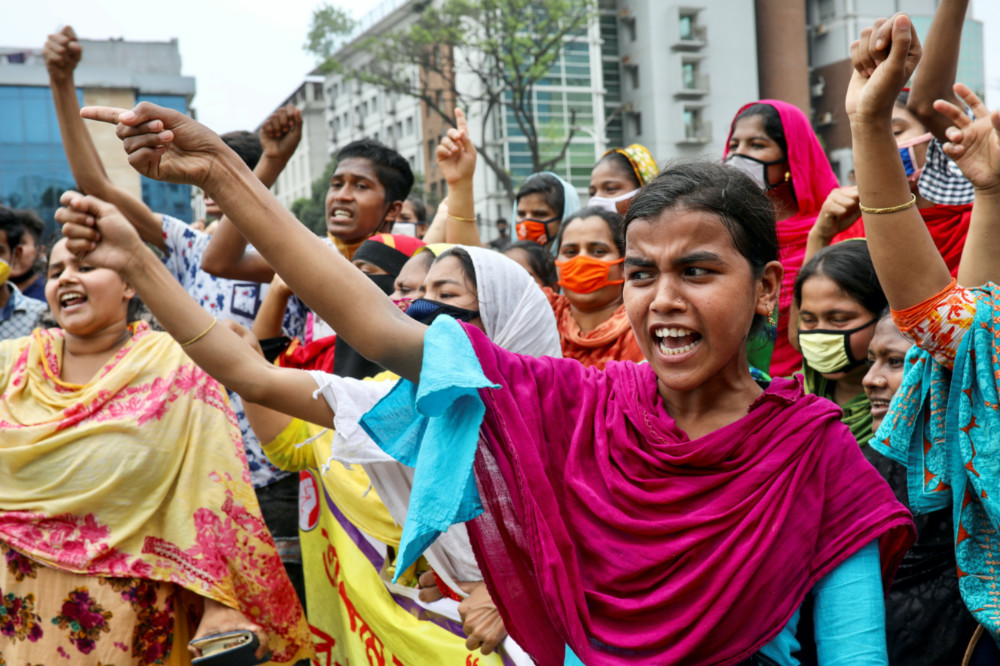Dhaka, Bangladesh
Thomson Reuters Foundation
Manufacturers from the six nations that make most of the world’s clothes have forged a common front to negotiate better terms with Western fashion brands, whose cancelled orders devastated Asian garment workers early in the pandemic.
“We want to come together to tackle the common problems we face. This is not about setting a minimum price for orders. This is about ethical business practice,” Miran Ali, a spokesman for the STAR Network of Asian suppliers, said on Wednesday.

Garments workers shout slogans as they block a road demanding their due wages during the lockdown amid concerns over the coronavirus disease (COVID-19) outbreak in Dhaka, Bangladesh, on 15th April, 2020. PICTURE: Reuters/Mohammad Ponir Hossain/File photo.
Ali said that the new initiative – launched on Monday – would give Asian manufacturers a “stronger voice” in setting pay and delivery terms with Western high-street brands.
The group represents nine associations in six nations: the world’s largest garment producers – China, Bangladesh and Vietnam – as well as Pakistan, Myanmar and Cambodia.
Collectively, they represent 60 per cent of the world’s clothing exports, said Ali, and employ millions of workers.
Suppliers in other nations are free to join, he added.
Raising the bar
The aim is to bolster the textile sector, devastated by a pandemic that has worsened widespread job insecurity and low pay.
“We are banding together to create…standard conditions,” said Ken Loo, spokesman at a Cambodia-based garment association. “No one is under any obligations to abide by these terms but we hope it will be a guideline for all buyers and suppliers.”
Early last year, fashion companies cancelled billions of dollars worth of orders as COVID-19 shuttered stores worldwide, leading to wage losses of up to $US5.8 billion, according to the Netherlands-based pressure group Clean Clothes Campaign.
While orders picked up in the second half of 2020, Western brands demanded price cuts and delayed payments to suppliers desperate for any orders to survive, according to researchers.
Ali said a united front would help firms hold out against such pressure, and that unions would sit on its advisory board.
“There is no platform that calls a buyer out on unethical regional practice. For instance, a buyer can’t just place an order in South Asia, leave us with the liability and then decide to place its orders in another region. That’s unethical.”
About 60 million people work in Asia’s garment industry and industry experts say the falling sales have left workers open to fresh exploitation, be it out of work altogether or employed by firms that undercut rivals on price to win scarce contracts.
Campaigners have urged manufacturers to use the initiative to improve workers conditions, not just boost their own profits.
“We would hope that the initiative would include a clear roadmap of how better deals with brands will lead to higher wages and safer work conditions for workers,” said Meg Lewis, head of campaigns at Labour Behind the Label, a non-profit based in Britain.





